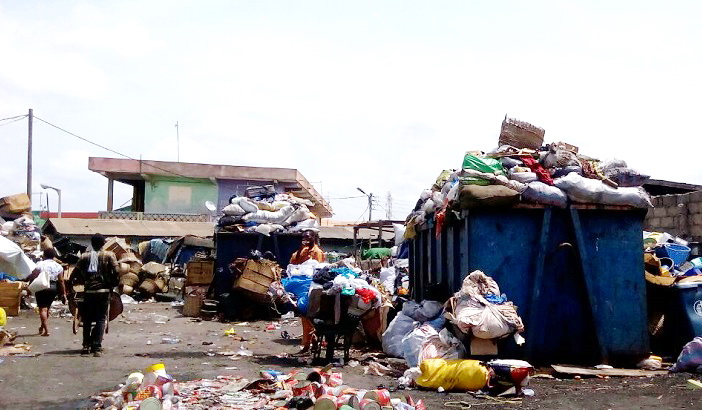
Let’s change mindset on sanitation
A walk through the streets of the major cities in the country will show an overwhelming state of filth that has engulfed the country.
The situation in the bigger cities — from Accra through Kumasi to Takoradi and Tamale to the other regional capitals — gives the impression of a nation that does not care a hoot about the filth in which the citizens are living.
Advertisement
The situation is even worse when one visits the coastal cities. In addition to the garbage that households generate which is not properly managed, many households do no have toilets and those who live by the beaches turn our sandy beaches into places of convenience, a spectacle that turns away many a tourist and deprives the country of revenue that would have accrued from tourism.
Because of the lack of a proper waste disposal system, the filth generated by residents keeps piling up, as waste collection has not matched the quantum of waste generated by residents of the cities. As is to be expected, Accra is the worst affected.
It is estimated that more than 20,000 tonnes of waste is generated throughout the country daily, with Accra alone generating about 3,000 tonnes and most of it not properly handled, resulting in the destruction of our land and water bodies.
When President Akufo-Addo announced his determination to ensure that Accra becomes the cleanest city in Africa and appointed a minister in charge of sanitation, many heaved a sigh of relief.
But it appears that one year on, not much has been achieved.
It is for this reason that the Daily Graphic saw it prudent to bring together stakeholders last Friday to discuss ways to ensure a clean environment to prevent the outbreak of diseases and also ensure that the President’s vision was rekindled.
We call on the media, civil society organisations and, indeed, all residents of the country to join the crusade to rid Ghana of filth.
There is usually a tendency on the part of many that for as long as there are institutions paid to ensure that the streets are swept and the garbage collected, they are not obliged to help in the crusade.
In our view, the biggest obstacle to tackling the sanitation problem is the people’s mindset. It is, therefore, imperative to step up education on the need to keep our cities clean. We recall that the late Vice-President Aliu Mahama started a campaign against indiscipline while he was in office but the fire in the campaign waned after he left office.
Subsequently, there have been other campaigns, with National Sanitation Days being organised at the beginning of every month. But the lack of a proper mindset to handle the sanitation situation, in our view, has been the main reason for our woes.
We call on all citizens to adjust their mindset to the changing times. We must realise that it is not right for buyers of even the smallest items to demand that such items be bagged and re-bagged in plastics; that it does the environment no good to throw trash on the ground and in the gutters.
We should also educate ourselves on the dangers of inadequate sanitation and begin living lives that will ensure that the filth generated will be reduced to the barest minimum. Other cities in Africa have succeeded and nothing stops us from doing it.
We must all remember the adage that ‘Cleanliness is next to godliness’.




